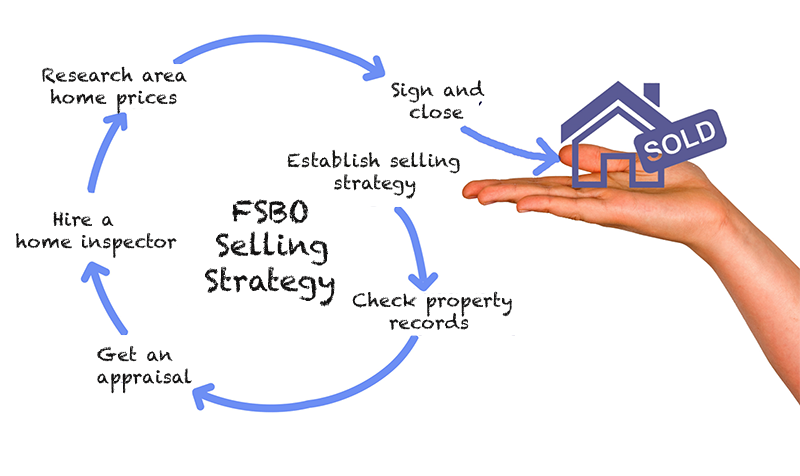
Selling a home requires careful planning, effective marketing, and strategic decision-making. To maximize your chances of a successful sale, it’s crucial to employ proven sell home strategies. In this article, we will explore key strategies that can help you navigate the real estate market and achieve your desired outcome.
1. Set the Right Price
Setting the right listing price is a critical strategy in selling your home. It’s essential to find a balance between attracting potential buyers and maximizing your return on investment. Consider the following factors when determining the price:
- Market Research: Conduct thorough research on comparable properties in your area to understand the current market trends and pricing. Look at recent sales data, property features, and location to assess the value of your home.
- Consult with Real Estate Professionals: Seek guidance from experienced real estate agents who have a deep understanding of your local market. They can provide insights and help you determine a competitive and realistic listing price.
- Consider Market Conditions: Take into account the current state of the real estate market. In a seller’s market with high demand and limited inventory, you may have more flexibility in pricing your home competitively. In a buyer’s market with more inventory, you may need to price your home strategically to stand out among the competition.
2. Enhance Curb Appeal and Home Staging
First impressions matter when it comes to selling a home. Enhancing the curb appeal and staging the interior can significantly impact the perception of potential buyers. Consider the following strategies:
- Curb Appeal: Improve the exterior appearance of your home by enhancing landscaping, cleaning the driveway and walkways, and adding fresh coats of paint to the front door and trim. Ensure that the entryway is inviting and well-maintained.
- Home Staging: Create an appealing and neutral environment that allows potential buyers to envision themselves living in the space. Remove personal items, declutter rooms, and consider rearranging furniture to optimize the flow and highlight the best features of your home. Professional home stagers can provide valuable assistance in this process.
3. Effective Marketing and Promotion
To attract potential buyers and generate interest in your property, you need to implement comprehensive marketing and promotional strategies. Consider the following approaches:
- Online Presence: Leverage the power of the internet by listing your home on popular real estate websites, utilizing professional photographs, and crafting compelling descriptions. Include high-quality images that showcase the unique features of your home and create virtual tours or 3D walkthroughs for potential buyers.
- Social Media: Utilize social media platforms to reach a broader audience. Create engaging content, share relevant information about your home, and encourage sharing and engagement from your network.
- Traditional Marketing: Don’t overlook traditional marketing methods such as print advertisements, brochures, and signage. Target local publications, community bulletin boards, and real estate magazines to reach potential buyers in your area.
- Open Houses: Host open houses to allow interested buyers to explore your home firsthand. Prepare the property by making it clean and welcoming, and ensure that you or your agent are available to answer questions and provide information.
4. Collaborate with a Knowledgeable Real Estate Agent
Working with a professional real estate agent can be a game-changer in your selling journey. They bring expertise, market knowledge, and valuable resources to the table. Consider the following benefits of collaborating with an agent:
- Pricing Expertise: Real estate agents have access to comprehensive market data and can help you determine the optimal listing price for your home.
- Marketing and Networking: Agents have established networks and connections in the real estate industry. They can promote your home to potential buyers and other agents who may have interested clients.
- Negotiation Skills: Skilled agents can negotiate on your behalf to secure the best possible price and terms for the sale of your home.
- Streamlined Process: Agents handle the paperwork, scheduling, and coordination of showings and inspections, making the selling process smoother and less stressful for you.
5. Be Flexible and Responsive
Flexibility and responsiveness are essential attributes when selling a home. Consider the following strategies:
- Availability for Showings: Be accommodating to potential buyers’ schedules and make your home available for showings as much as possible. Flexibility can lead to increased interest and offers.
- Prompt Communication: Respond promptly to inquiries, requests for information, and offers. Being proactive and communicative demonstrates your commitment to selling your home.
In conclusion, selling a home requires strategic planning, effective marketing, and collaboration with professionals. By employing these sell home strategies, you can position yourself for success in the real estate market. Remember to adapt these strategies to your unique circumstances and consult with professionals to ensure a smooth and successful selling experience.
